January 19
Up at 4:15 for 5 AM ride to airport for 6:30 flight to Mandalay. Quick breakfast at hotel.
Easy ride to airport, where the domestic terminal looks right out of the 50’s. Security and baggage check are handled very efficiently. We board the Yangon Airways prop plane, which bears an insignia of an elephant with wings on its tail, raising the suggestion in our minds that this baby may take off only when elephants can fly.
Today’s quiz question, answer at end of this post. Who wrote:
By the old Moulmein Pagoda, lookin’ lazy at the sea,
There’s a Burma girl a-settin’, and I know she thinks o’ me;
For the wind is in the palm-trees, and the Temple-bells they say:
“Come you back, you British soldier; come you back to Mandalay!”
Come you back to Mandalay,
Where the old Flotilla lay:
Can’t you ‘ear their paddles chunkin’ from Rangoon to Mandalay?
On the road to Mandalay,
Where the flyin’ fishes play,
An’ the dawn comes up like thunder outer China
‘crost the Bay!
Apparently, elephants do fly. And offer advertisements on their overhead bins, outdoing us in commercialism.
We drive to our hotel, The Arawady River View, but, as our room is not ready, we proceed to the home of U Khin Maung Sway, retired psychology professor and his wife, Daw Khin Marlar, a retired philosophy professor. There we have a most interesting couple hour talk, over tea and cake served by Daw Khin Marlar.
U Khin Maung Sway was sent to Russia in the sixties by the government and there learned Russian and socialism. Returning, he taught for 26 years in Yangon and Mandalay, before quitting. He sits across from us and speaks very slowly and deliberately. She sits off to the side, on a small stool, barefoot obviously listening, but saying nothing. (We learned on our first day that one takes shoes and socks off in homes and religious places, so I now wear sandals rather than lace walking shoes with socks.)
U Khin Maung Sway has written several books, which he shows us proudly, including the first of what will be two volumes of a biography of Freud and a book on neuropsychology. He has translated books from both Russian and English into Burmese. Before we leave, he gives us and signs about a 25-page English summary of a book on Bagan that he translated first to Russian and then, in this excerpt, to English. He clearly is pleased and proud to give it to us.
From our discussions with U Khin Maung Sway, it’s clear that teaching psychology in Myanmar is a tough gig, certainly not a growth industry. The enrollment in psychology is low, and decreasing. Educational content is governed by the ministry of education, who have no interest in psychology, other than the psychology of warfare, which he taught at one point. Psychological therapy is counter to Burmese culture and beliefs in astrology, shamans and the efficacy of nats (spirits).
When we drew Daw Khin Marlar into the discussion, she was animated and articulate, and much more fluent than her husband. She spoke at length about how the Burmese were not “educated,” able to think for themselves. Until this happens, the country cannot move forward. They both seemed to acknowledge that recent changes are positive, but have no illusions about any quick or short-term change. It will take a long, long time, “but we have to be positive, hopeful.”
Lunch with Aung Lin Htet at a popular restaurant, frequented by a couple large tour groups. Carol and I feel very fortunate to be able to travel alone, with complete flexibility and control. We are joined at lunch by Naing Naing (he introduces himself as “Nie,” a relief to us, who have great difficulty with the Burmese names), a rather recent graduate of PCP, who studied for two years at a Japanese school. Nie works for the NLD, the National League for Democracy, Aung San Suu Kyi’s party. He has set up the two meetings we will have later in the day, and will accompany us in two days to visit the rural area from which he comes. While his English is quite good, his accent and speech pattern make him somewhat difficult for Carol and me to understand, so we are happy to have Aung Lin Htet to “translate,”
After lunch, we take a brief walk along the moat, two miles square, that separates what used to be the king’s palace in the 19th century. We then go to check into the Irrawady River View Hotel, at which our room has no river view. The hotel is passable, but a very far cry from the lovely Governor’s Residence.
We drive to the headquarters of the NLD, where pictures of Aung San Suu Kyi are everywhere and are for sale in the entry office.
Upstairs, we meet for an hour and a half with the chairman of the NLD in the Mandalay Dvision, Daw Win Mya Mya, and U Hla Kaung, an executive committee member of the Mandalay Division of the NLD. Daw Win Mya Mya responds to the many questions that we pepper her with. She is very animated and fluent in her long responses, providing a translation problem for Aung Lin Htet, which he handles commendably.
Three things emerge quite clearly from all of this discussion. First, the overwhelming priority issue is resolution of issues with Myanmar’s ethnic groups, who comprise over 40% of the population. Until that is done, nothing can be accomplished. Particularly acute is the armed conflict in the Northern Myanmar Kachin area. Second. Aung San Suu Kyi is viewed as an almost mythical figure; they are convinced that if she were given authority, all difficulties could be resolved with ethnic people who trust and revere her. Third, the elections in 2015 will be key, and afford an opportunity for real change to occur, if the NLD can gain control, rather than the 10% representation they currently have. (Nie expects to be a candidate in that election.) Once elected, necessary changes in the constitution, which still guarantees the military 25% of the legislative seats, and other reforms can be implemented. The meeting was unusual and informative.
We drive to a small restaurant/coffee shop, where we meet upstairs for almost two hours with five former political prisoners, all of whom are now actively involved in environmental matters. All of them are in their forties and were student activists, part of the generation of ’88, that rebelled against the repressive , military government and paid a heavy price in torture, imprisonment and, for some, death. We learned about how false charges were manufactured against them by a paranoid government that thought that the students had more power or plans than they in fact had. Torture, then imprisonment under harsh conditions–relieved somewhat during periods that the Red Cross was there–and eventual release when the general who spearheaded all of this finally was brought into disrepute.
All of them are also involved with the new generation of student activists. When I suggested that students must respect and look up to them because of what they did, they said simply, “many others gave their lives.” They are remarkably unbitter, focused instead on the future. They are concerned about the psychological state of some of their friends and asked Carol for advice on how to deal with it.
The three principal environmental interests they had focused on all involved actions by China, the construction of a large dam on the Irrawady, destructive copper mining and an oil pipeline. The interests of countries like the US and Japan in controlling China’s influence are potentially useful in building support for the group’s efforts. Thus far, there seems to be only very limited international coordination of efforts.
They ask us about ourselves, and in the process, we discover that one of their group, Maung Tin Thit, is a poet. He is the one that both Carol and I took an immediate liking to because of his, kind and gentle manner of speaking. They all have very limited English, so Nie and Aung Lin Htet translate for us. The former prisoners offer to set up more meetings for us, but our schedule does not permit that. We exchange goodbyes and tell them it has been an honor and privilege to meet with them.
Carol and I go with Aung Lin Htet to a very good Indian dinner at a restaurant that Joe Feldman has recommended at the Hotel on the Red Canal. From there, we go to what was suppose to be a puppet show, but appeared to be a comedy show by the Moustache Brothers, at least one of whom was imprisoned by the military for his comedy. While it’s perhaps harsh to say so, we think his comedy is so bad that he should have been kept incarcerated. After 20 minutes, the three of us get out of our front row seats and leave. The house is packed and everybody else seems to think that the Brothers are hilarious.
We walk around the carnival-like street scene for a short time, then are picked up by a friend of Aung Lin Htet and driven back to our hotel, where we shower and retire immediately.
Answer to quiz question: quoted is the first verse of Mandalay, written by Rudyard Kipling in March or April 1890, at the height of the colonial period, when the British poet was 24 years old.
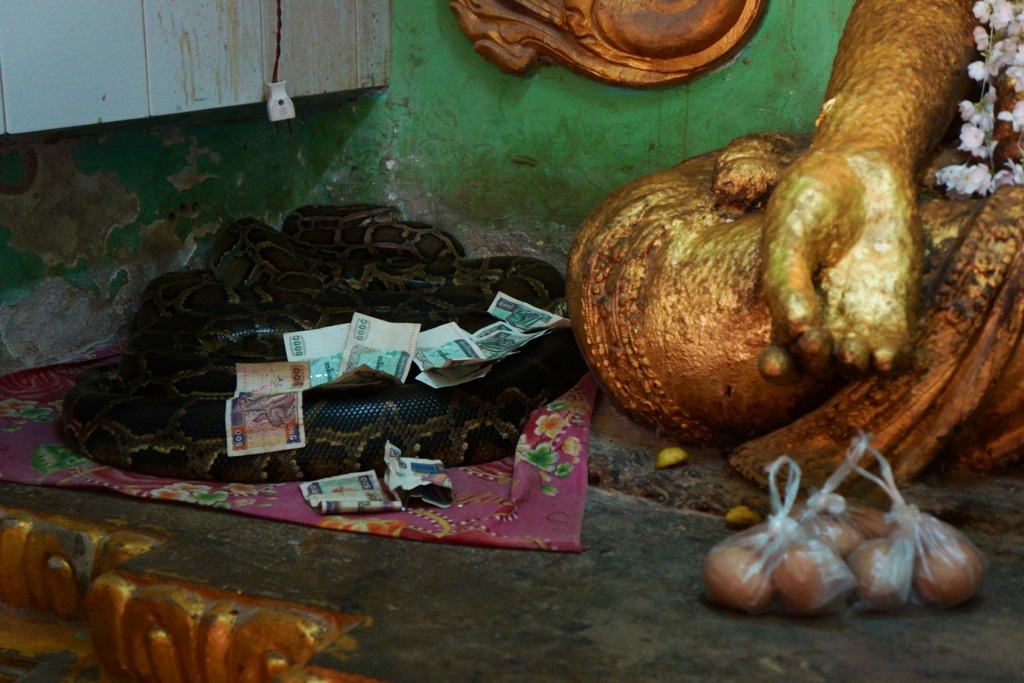
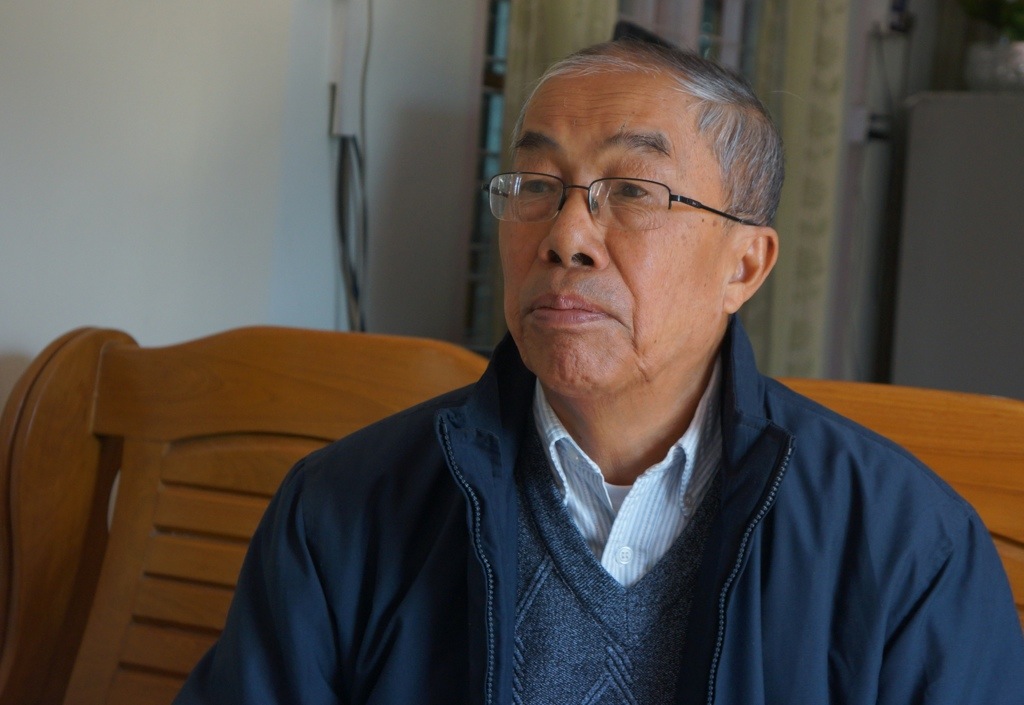
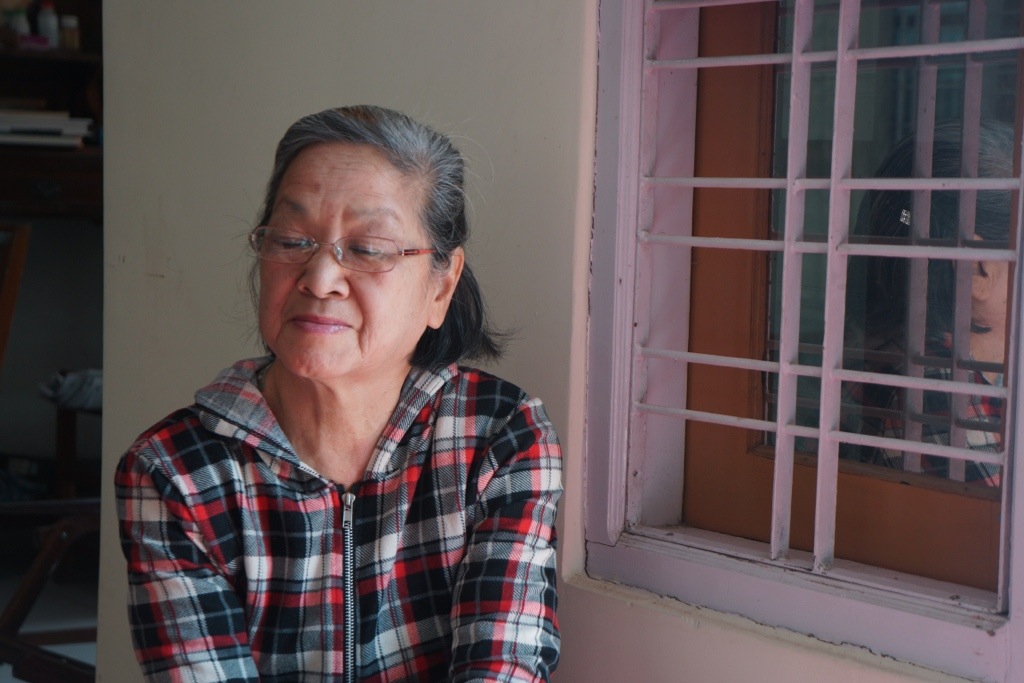
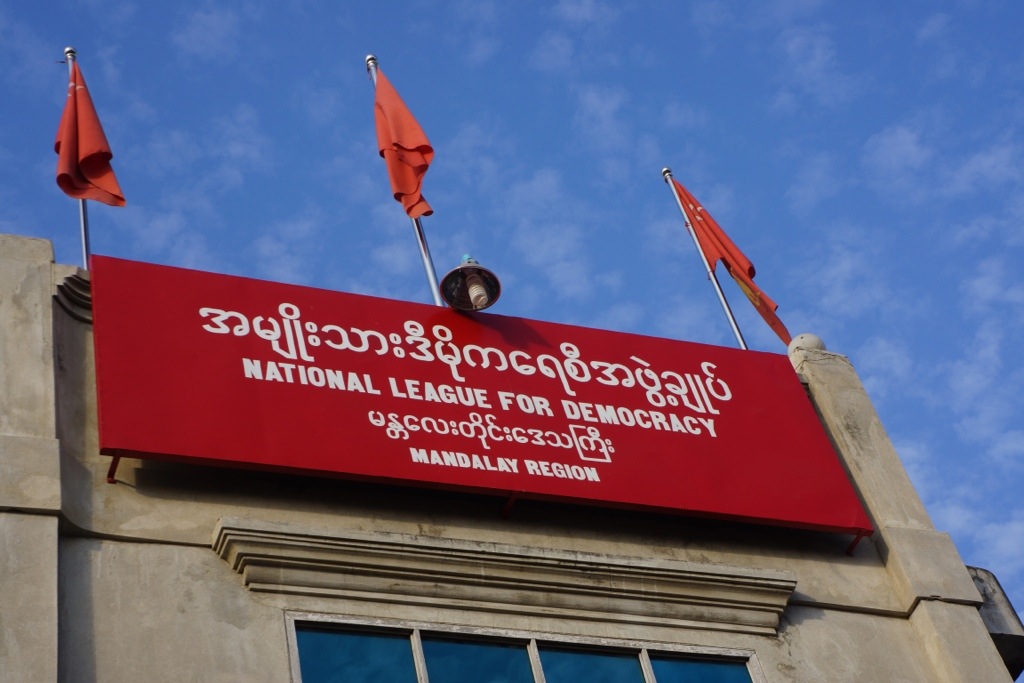
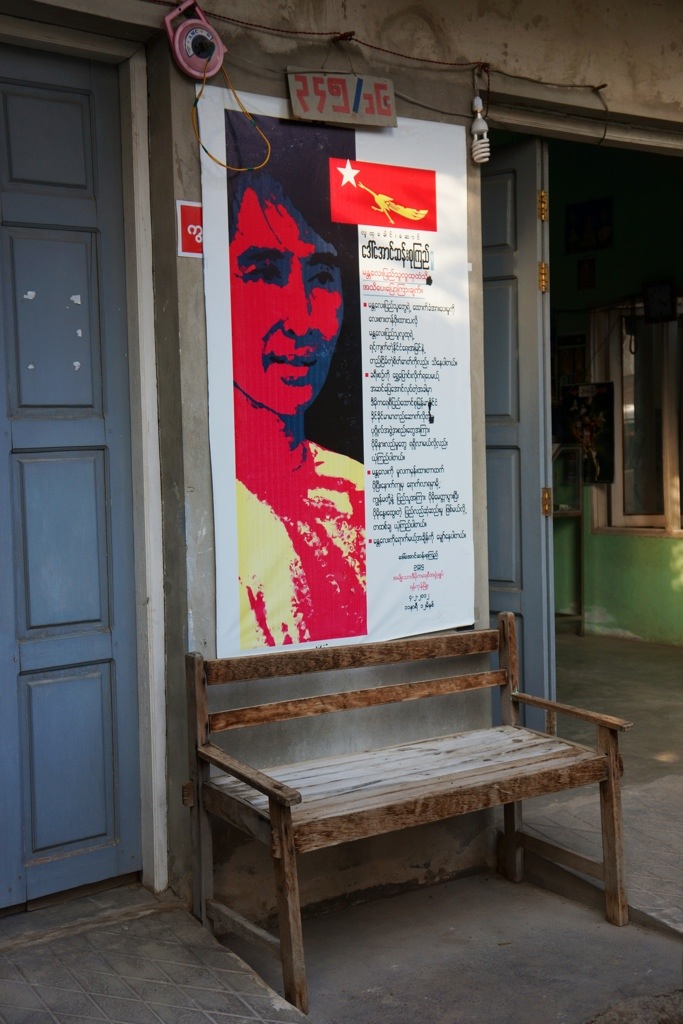
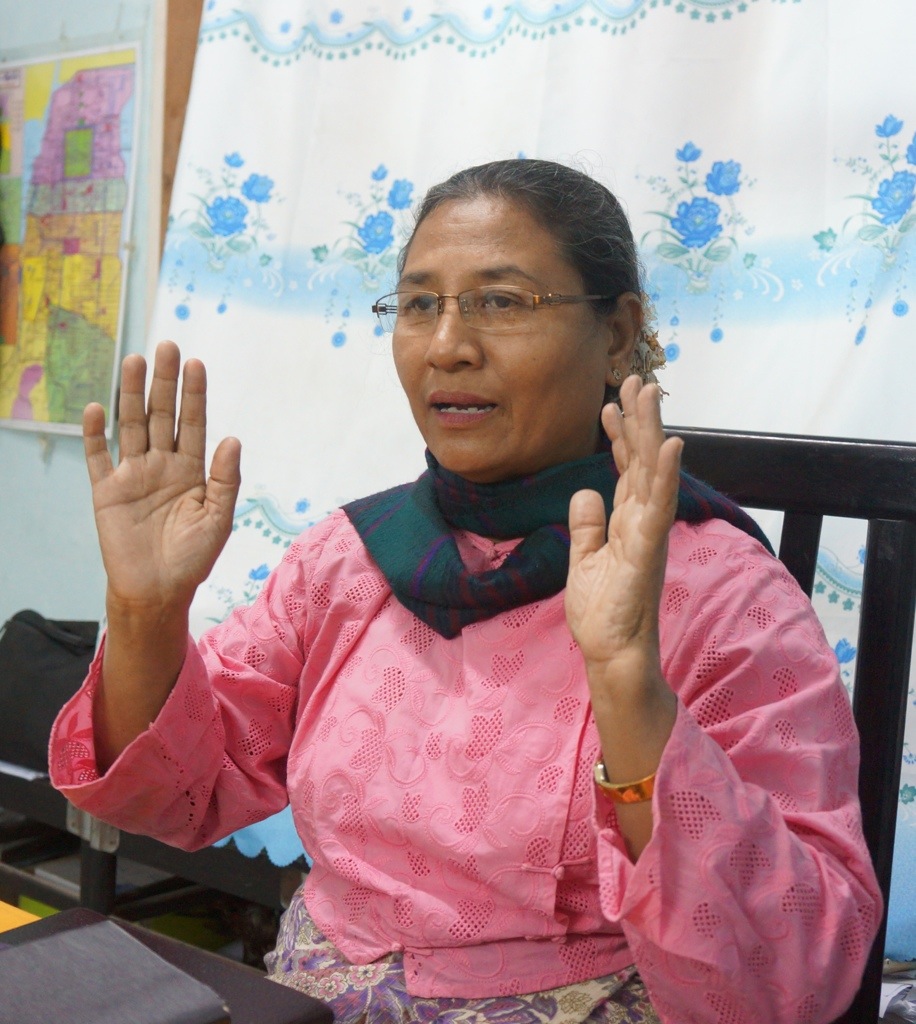
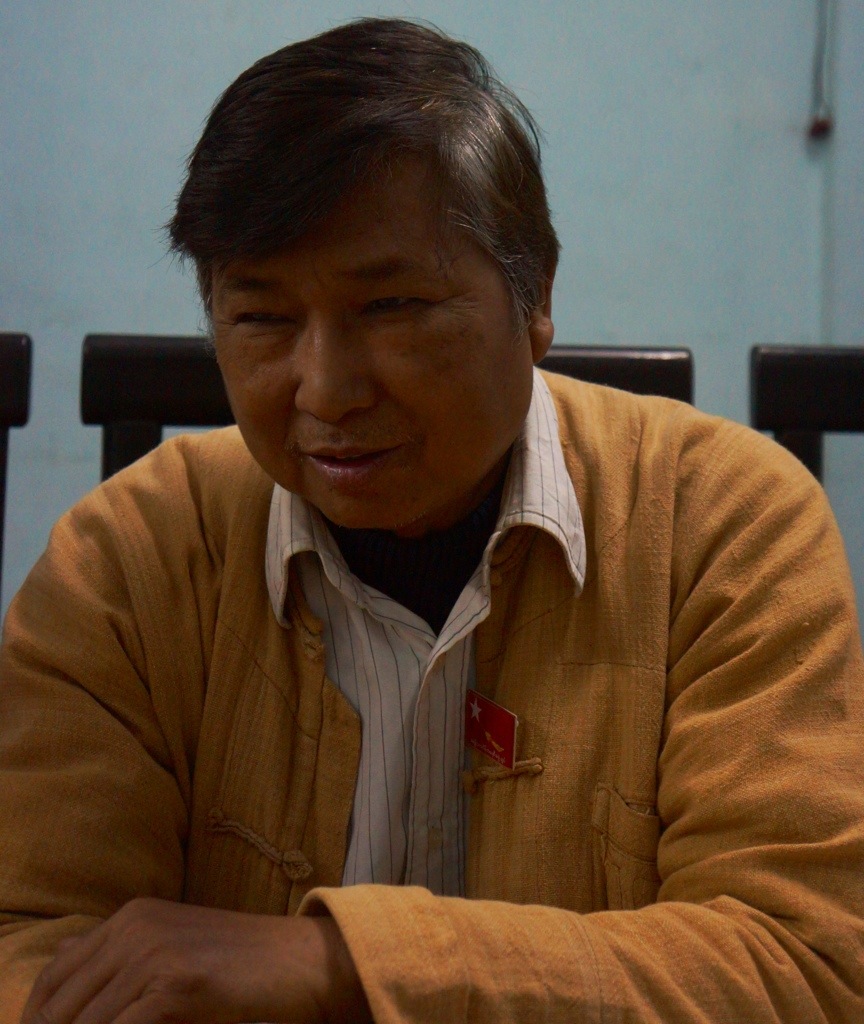
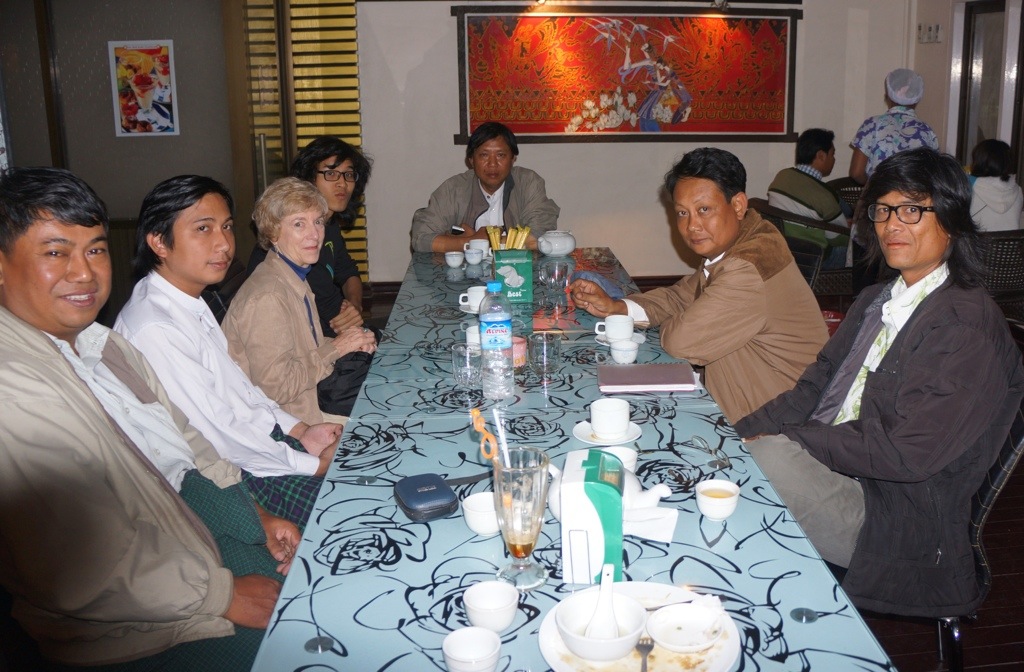

Kipling, of course. I can remember, as a kid, hearing it sung. Can’t recall by whom. By the way, the link to Duck, Duck Goose and Day Care for Elderly Doctors didn’t seem to work for me.
I could not get Duck, Duck Goose either.
I am delighted to learn that elephants can fly! E